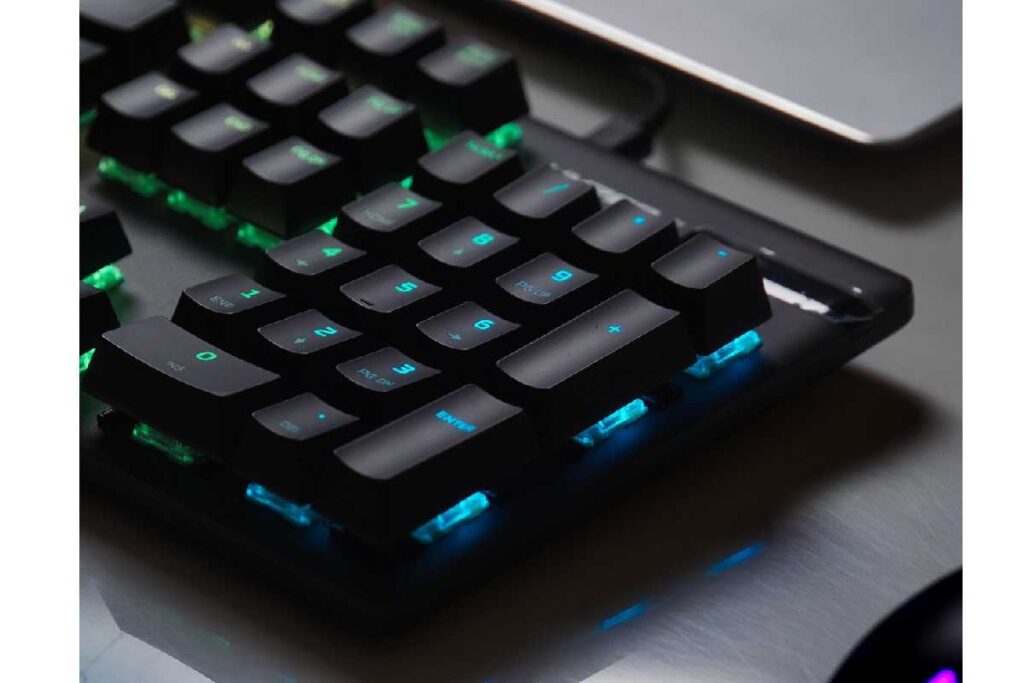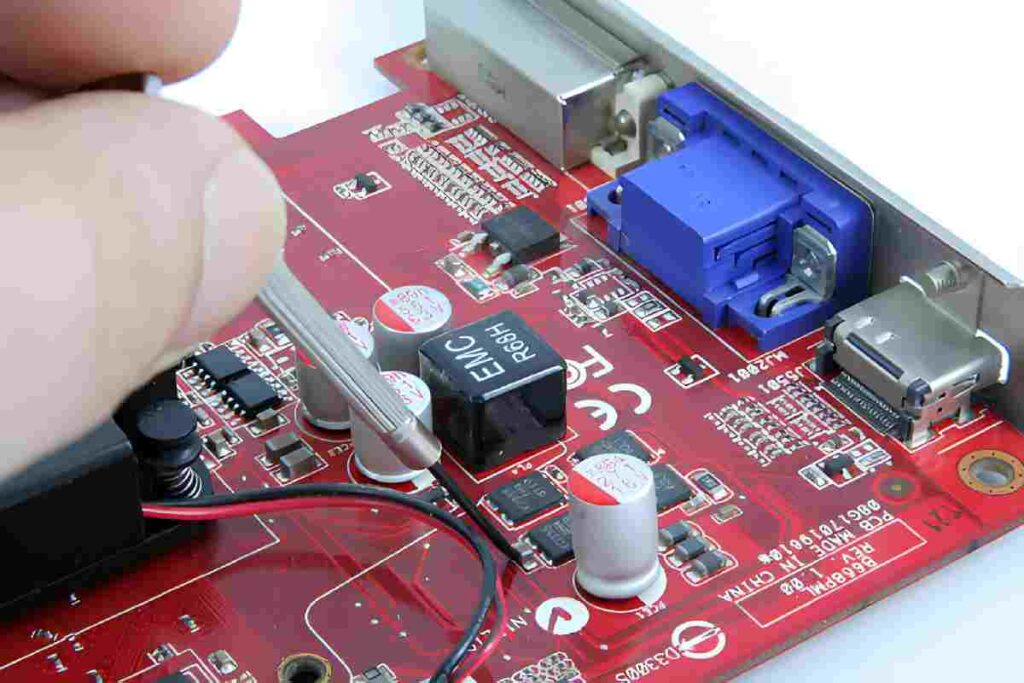Okay so nothing2hidenet gaming became my obsession after I got DDoS’d three times in one week. Three times! I was grinding ranked in Apex and some salty kid decided my internet needed to disappear. That’s when I realized—gaming in 2025 means everyone can see everything you’re doing unless you actually do something about it.
My ISP was tracking which games I played (creepy), other players could grab my IP mid-match (dangerous), and don’t even get me started on how Comcast would slow my connection to a crawl every single night around 8 PM. I spent two months figuring out how to game privately without destroying my ping, and honestly? It changed everything.
What Nothing2HideNet Gaming Actually Means (And Why It Matters)
Let me clear something up right away—nothing2hidenet gaming isn’t some fancy software you download. It’s basically the idea that you should be able to game without your ISP, random players, or gaming companies knowing every detail about your online life.
Think about it this way: when you’re playing online, your IP address is basically your home address. Game servers see it. Other players can see it if they know where to look. Your ISP definitely sees it and often decides to mess with your connection based on what you’re doing.
I remember this one time my buddy Jake got swatted because someone grabbed his IP during a Valorant match and found his actual address. That’s not a theoretical risk—that’s real life scary stuff that happens more often than anyone wants to admit.
The Stuff That Made Me Switch to Private Gaming
My internet provider started throttling my connection every evening. Not just a little bit—I’m talking going from 40ms ping to 200ms+ the second it hit prime time. Customer service kept telling me nothing was wrong, but the pattern was too obvious.
Then there’s the whole data collection thing. Epic Games knows when I play, for how long, which modes I prefer, who I play with, and probably what snacks I’m eating (okay maybe not that last one). But they collect way more data than they need to run the game.
Regional restrictions drove me nuts too. Some of my friends are in Europe and certain games wouldn’t let us play together because of region locks. Or I’d want to check out a game that released early in New Zealand but couldn’t access it from the US.
Plus the DDoS situation I mentioned. After the third attack, I was done. No more playing with my actual IP address exposed to anyone who wanted to grab it.
Breaking Down What You Actually Need for Private Gaming
Here’s what I figured out after trying literally everything: you need three main things working together. Miss any of these and you’re either exposed or your gaming performance tanks.
Gaming VPNs That Don’t Completely Destroy Your Ping
Most VPNs are terrible for gaming. Like truly awful. They add 50-100ms of latency and that’s instant death in competitive games. The ones that actually work for nothing2hidenet gaming are different.
First thing—they use WireGuard protocol. I tested this myself and the difference between WireGuard and old OpenVPN is night and day. My ping went from +80ms with OpenVPN to +5ms with WireGuard on the same server. That’s the difference between playable and unplayable.
They also need actual gaming servers, not just regular VPN servers. Gaming servers are optimized for low latency instead of maximum security. Regular VPN servers prioritize encryption over speed which is fine for browsing but kills gaming.
Split tunneling saved my setup too. This lets you send only your game traffic through the VPN while everything else uses your regular connection. So Discord, Spotify, YouTube—all that runs normally while your game stays protected.
Port forwarding matters if you host game servers or have NAT type issues (which I did). Took me forever to figure out why my matchmaking sucked until I enabled port forwarding through my VPN.
Your DNS Settings Matter More Than You Think
Nobody talks about DNS for gaming but it actually makes a huge difference. Your DNS provider can see every game server you connect to and when. Plus slow DNS lookups add latency before you even connect to a match.
I switched to Cloudflare’s 1.1.1.1 DNS last year and my lobbies started connecting noticeably faster. Like 15-20% faster. Plus Cloudflare doesn’t log or sell your DNS queries which is the whole point of nothing2hidenet gaming.
Locking Down Your Actual Network
A VPN is great but if your network itself is wide open you’re still vulnerable. I learned this after securing my PC but leaving my router on default settings like an idiot.
Setting up my VPN directly on my router meant every device got protection automatically. My PlayStation, Switch, even my phone when connected to home WiFi—all protected without configuring each device individually.
I also set up proper firewall rules to block random incoming connections. Before this, port scanners could see which services I was running. Now? Good luck getting any info from my network.
Guest network isolation is clutch too. All those smart home devices that have garbage security? They go on the guest network completely separated from my gaming setup.
How I Actually Set This Whole Thing Up
Look, I’m not some networking expert. I figured this out through trial and error and a lot of Reddit threads at 2 AM. Here’s exactly what I did.
Picking a VPN That Doesn’t Suck for Gaming
I tested five different VPNs over two months using the 30-day money back guarantees. Ran speed tests, ping tests, played competitive matches, the whole nine yards.
What I found: marketing claims are usually BS. NordVPN claimed the fastest speeds but ExpressVPN actually performed better for my location and the games I play. Your results will probably be different based on where you live and which game servers you connect to.
Test everything yourself. Connect to the VPN and play your main game for a few hours. Check your ping before and after. See if you get any disconnects. Make sure matchmaking still works properly. Don’t just trust reviews.
The VPN I ended up with added between 3-8ms of latency depending on which server I used. That’s completely playable even for competitive FPS games. Anything under 20ms added is acceptable in my book.
Getting My Router to Do the Heavy Lifting
Upgraded to an ASUS router that supports VPN clients natively. This was honestly the best money I spent on my entire setup because it meant I didn’t have to configure VPN software on every device.
Set up QoS (quality of service) to prioritize gaming traffic over everything else. Now when my roommate streams Netflix in 4K it doesn’t affect my ping at all. The router just makes sure my game packets get priority.
Enabled IPv6 because some game servers route IPv6 traffic more efficiently. Didn’t make a huge difference for most games but Overwatch lobbies connected faster after enabling it.
Dialing in Each Gaming Device
On my PC I use the VPN’s native Windows app because it’s the fastest option and gives me the most control. Kill switch feature is enabled so if the VPN drops my real IP never leaks.
For my PlayStation things got trickier since consoles don’t support VPN apps. Ended up configuring it through my router which works great but means I can’t easily switch VPN servers from the console itself.
Switch was the most annoying to set up because Nintendo’s network code is from 2005 apparently. But once I got it working through the router VPN it’s been solid.
Making Everything Fast While Staying Private
Having privacy is pointless if your games run like garbage. Here’s how I kept both.
Server Location is Everything
Connect to VPN servers close to the game servers you’re playing on. Sounds obvious but people mess this up all the time. If you’re playing on US West game servers, connect to a Los Angeles or Seattle VPN server, not Miami.
I keep notes on which VPN servers work best for which games. Apex Legends runs best when I connect to Dallas servers. Valorant prefers Chicago. League of Legends doesn’t care much as long as I’m somewhere in the eastern or central US.
Check server load too. My VPN shows what percentage of capacity each server is at. Anything over 75% loaded and I find a different server because overcrowded servers add latency.
Protocol Testing Made a Big Difference
WireGuard beats everything else for gaming. Period. I tested WireGuard vs OpenVPN vs IKEv2 on the same server at the same time of day.
WireGuard: +5ms average latency IKEv2: +25ms average latency
OpenVPN: +85ms average latency
The difference is massive. Always use WireGuard if your VPN supports it. If not, consider switching to a VPN that does because it’s that important for gaming.
Running Regular Performance Checks
Every couple weeks I test my connection with and without the VPN. Just to make sure nothing’s degraded or changed. Takes five minutes and catches problems before they ruin your ranked games.
I track ping to my most-played game servers in a simple spreadsheet. If the numbers start creeping up I know something changed—either my VPN added new servers I should try, or my current server got overcrowded, or my ISP is having issues.
Real Situations Where Private Gaming Saved Me
Let me give you some actual examples of when my nothing2hidenet gaming setup proved its worth.
Competitive Gaming Without Getting Attacked
After I set everything up, the DDoS attacks stopped. Completely. Because potential attackers couldn’t grab my real IP anymore—they just saw my VPN’s IP which is useless to attack.
My friend who streams on Twitch uses the same setup now after someone threatened to swat him during a stream. His real location is completely hidden and he’s never had issues since.
In competitive Discord servers people sometimes try to grab IPs through voice chat exploits. Doesn’t work anymore because they just get my VPN IP which tells them nothing about my actual location.
Playing Games That Aren’t “Available” in My Region
Sometimes games release in different regions at different times. When Elden Ring came out I connected to a New Zealand VPN server and played it a full day before the US release.
Some online games have region-specific content or events. I wanted to check out the Japanese servers in Final Fantasy XIV and just connected to a Tokyo VPN server. Worked perfectly.
Regional pricing is different too. I’ve saved money on game purchases by connecting to regions where prices are lower. Not gonna say which ones but if you know you know.
Fixing My ISP’s “Traffic Management” Problem
Remember how my ISP throttled my connection every evening? Once I started routing game traffic through my VPN they couldn’t identify it as gaming traffic anymore. Just looked like encrypted data to them.
My ping during peak hours went from 180-200ms back down to 35-40ms. My rank in Apex went up two full tiers just because I could actually play during normal hours again.
Turns out Comcast was specifically throttling gaming and streaming traffic during congestion. Encrypting everything stopped them from discriminating against specific types of traffic.
Gaming on Sketchy Public WiFi
Took my gaming laptop to a hotel for a work trip. The hotel WiFi was completely unsecured—no password, no encryption, nothing.
Normally I wouldn’t game on that but my VPN encrypted everything so even though the WiFi itself was insecure my traffic was protected. Played ranked League matches from the hotel without issues.
Same thing at airports and coffee shops. Public WiFi is usually terrible for security but a VPN makes it actually usable for gaming.
Fixing Problems When Things Go Wrong
Nothing’s perfect and sometimes you hit snags. Here’s how I troubleshot the most common issues.
When Your Ping is Still Too High
First try different VPN servers. I had one server that showed low load but still gave terrible ping—turns out the routing to that specific data center was bad. Switched to a server 50 miles away and ping dropped by 40ms.
Make sure you’re using WireGuard protocol. If you’re still on OpenVPN or IKEv2 switch immediately because you’re leaving free performance on the table.
Check what else is running on your network. My ping was inconsistent until I realized Windows Update was downloading in the background. Paused it and everything smoothed out.
Sometimes your base internet connection is just the problem and no VPN can fix that. If your internet sucks without the VPN it’ll still suck with the VPN, just slightly differently.
NAT Type Making Matchmaking Terrible
Strict NAT type was killing my matchmaking in Call of Duty. Lobbies took forever to find and half the time I’d get error messages.
Enabled port forwarding through my VPN and my NAT type changed from strict to moderate. Matchmaking went from 5+ minutes to under a minute for most matches.
Some games need specific ports forwarded. Google “[game name] port forwarding” and you’ll find which ports to open. Takes like two minutes to configure in your VPN settings.
Anti-Cheat Software Freaking Out
Valorant’s anti-cheat (Vanguard) sometimes doesn’t like VPNs. If you get kicked or can’t launch the game add Valorant to your split tunnel exceptions.
This makes Valorant use your regular connection instead of the VPN. Not ideal for privacy but Vanguard is so invasive it’s scanning your entire PC anyway so hiding your IP from Riot is kinda pointless.
Most games work fine with VPNs now. Only a few games with really aggressive anti-cheat cause problems and split tunneling usually fixes it.
Privacy Stuff Beyond Just Playing Games
The nothing2hidenet mindset should cover your entire gaming life, not just matches.
Voice Chat is Usually Not Encrypted
Discord doesn’t encrypt voice chat end-to-end which means Discord can hear everything you say. Running Discord through your VPN at least hides your IP from other users.
Some voice platforms like TeamSpeak can expose your IP to server admins. VPN protects against this too.
In-game voice chat is usually the worst for privacy. Games can see and record everything. Not much you can do about that except not use in-game voice and stick to Discord.
Protecting Your Gaming Accounts Properly
Two-factor authentication on everything. I use Google Authenticator for all my gaming accounts because it’s way more secure than SMS codes.
Password manager with unique passwords for each account. I used to reuse passwords like an idiot until one of my accounts got breached and suddenly three other accounts were compromised too.
Account security is part of nothing2hidenet gaming even though it’s not network-related. Protecting your identity matters just as much as protecting your connection.
Streaming Your Gameplay Without Leaking Info
If you stream, your nothing2hidenet setup needs to account for upload bandwidth. Streaming adds significant overhead so you might need a beefier VPN server.
Some streamers run two internet connections—one for gaming, one for streaming. Keeps their gaming IP completely separate from their public stream. Expensive but if you’re worried about swatting it’s worth considering.
Never show your VPN connection info on stream. Sounds obvious but people accidentally show their VPN app interface which can leak information about your real location.
Where Private Gaming is Headed
Gaming companies want more control and more data. Players want more privacy and ownership. These two things are on a collision course.
Cloud gaming services like GeForce Now and Xbox Cloud Gaming are growing fast but they require trusting these companies with even more data. Nothing2hidenet gaming becomes harder when you don’t control the hardware.
Blockchain gaming keeps promising more ownership and privacy but so far most blockchain games are either sketchy or terrible. The technology might get there eventually but we’re not there yet.
Decentralized game servers could solve a lot of privacy problems by removing central points of control. Some indie games are experimenting with this but mainstream adoption is years away.
The tools I’ve covered here will evolve. New protocols will come out. Better VPNs will launch. But the core idea stays the same—your gaming should be private by default, not a product for companies to monetize.
Why I’m Never Going Back to Regular Gaming
Nothing2hidenet gaming took some work to set up. I’m not gonna lie—it was annoying figuring everything out initially. But now it just runs in the background and I don’t think about it.
No more DDoS attacks. No more ISP throttling during peak hours. No more worrying about my IP leaking to random players. My gaming experience is actually mine again instead of being monitored and controlled by companies and service providers.
Is it necessary for everyone? Probably not. If you only play single-player games and don’t care about privacy you’ll be fine without it.
But if you play competitive games online, stream your gameplay, or just value your privacy, nothing2hidenet gaming is worth setting up. The peace of mind alone makes it worthwhile.
Your gaming sessions should be about the games, not about who’s watching, tracking, or potentially attacking you. That’s what nothing2hidenet gaming gives you—the freedom to ust play without all the surveillance and BS that comes with modern online gaming.





